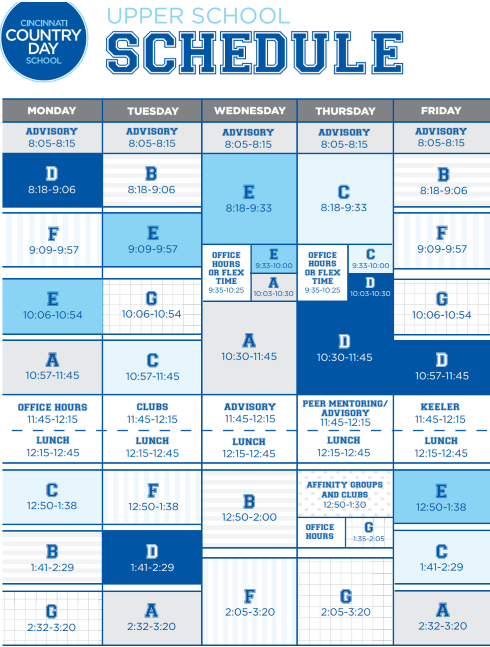By Sophie Weinstein ’13, Contributor
This fall, the CCDS administration has implemented some changes to the Student Handbook including the return of the “collar under sweater” rule.
Many students feel this was an unfair change from last year’s more relaxed dress code, but the administration believes students did not adhere closely enough to the ‘outer layer’ policy. Stephanie Luebbers, Upper School Head, described last spring’s response to the loosened dress code as “sloppy” and said that “neat and clean became not so neat and clean. Deans and faculty felt strongly students didn’t uphold their end of their bargain.”
Mrs. Luebbers’ goal in changing the rule “was to get people to pay attention to the dress code,… and have students, in my mind, regulate themselves a little bit.”
“The student body will have to show the ability in the first month of school to comply with the dress code,” said Jack Wildman ’10, Student Council Vice-President. “[Students have to] comply with both the spirit and the letter of the dress code, not to take shortcuts to get around regulations, and simply dress appropriately for school,” Wildman added. Wildman said that when that happens, he and Upper School President Baldur Tangvald can discuss with the administration allowing crew-neck sweaters again.
“In the same spirit as the saying ‘Friends don’t let friends cheat,’ I also believe in “Friends don’t let friends simultaneously break the dress code and mess up what everybody else enjoys,” said Tangvald.
Cassie Sachs ’13 is going to try and keep her friends motivated to follow the dress code “by reminding them that by wearing collars now,…[it means] later in the year we might not have to”.
Another major addition to the handbook this year was the new “Day of Detention.” This consequence was added to the Honor Council’s options as a way for students to be punished without their actions being reported to colleges.
Mrs. Luebbers believed that the Honor Council needed this extra option because “high school needs to be a time when you can make mistakes.”
Faculty Advisor of the Honor Council Jeanette Hecker is happy with the new addition because the council was “looking for something that perhaps fit in between dining terrace clean-ups and suspension. We were also looking for something that could be added to a Conduct Warning without immediately going to Probation.”
If a student is assigned a Day of Detention, he or she will have to stay in a secluded office for the same length as a regular school day and finish school work and tests. At 3:15 the student must then immediately proceed home, missing all after school activities including athletics and arts. Although it may sound similar to an In-School Suspension (ISS), Mrs. Luebbers said the big difference is that “if we called it ISS we’d have to report it…we wanted a middle ground we could apply with another sanction”.
The added rule that “Any student whose behavior jeopardizes the physical or mental health and safety of another individual or group of individuals at school will be subject to disciplinary action,” as stated by the handbook has drawn some question to why it was necessary. This year the school is making an attempt to protect the emotional well-being of students just as much as it has been protecting their physical well-being.
“Emotional well-being is as important as [the] physical well-being [of the students]. I believe this is a pretty safe school physically, but I also think that kids can be mean to each other,” Mrs. Luebbers said. “If they’re so mean so frequently they are impeding a student’s ability to function and learn, then somebody needs to be spoken to and held accountable.”
Mrs. Luebbers added that the rule is referring to any unkind treatment towards a person, not just using technology; however, “social networking has given a paper trail to poor behavior of friends. We’re not trolling Facebook…but that’s often how it’s brought to the school. Somebody has a print out.”
Photo by Ilana Habib ’11, Photography Editor



